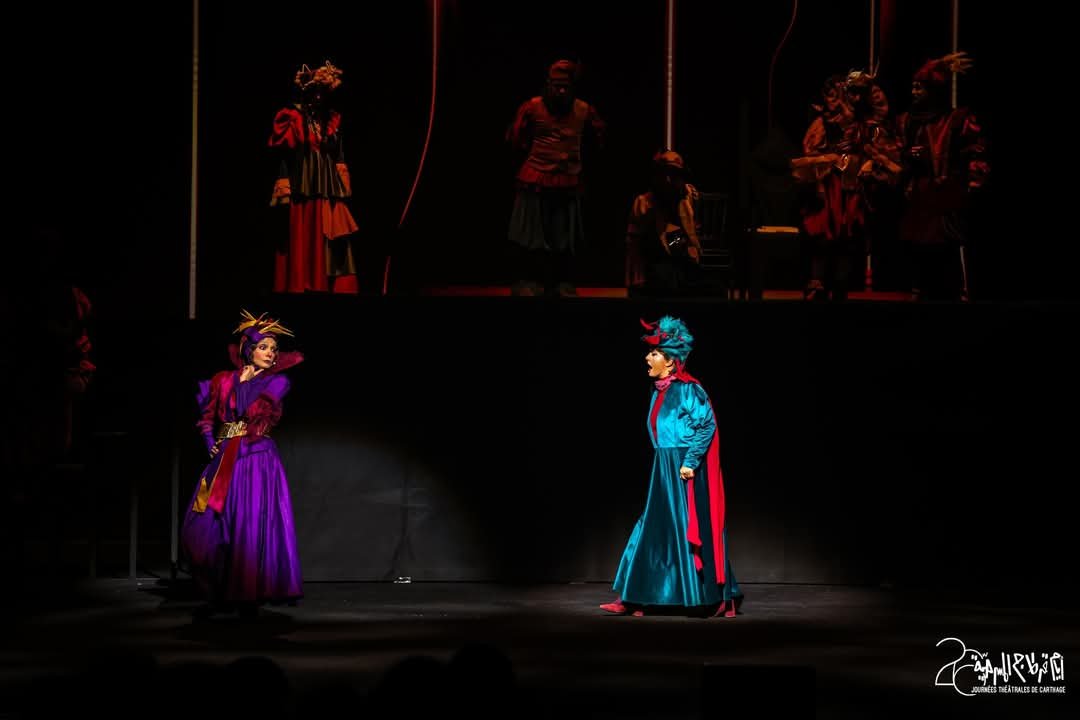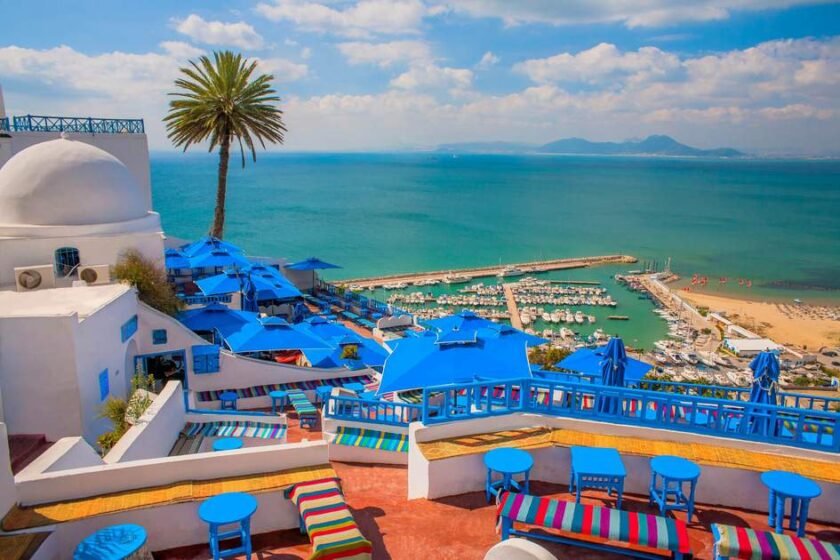The 2025 Carthage Theatre Days (JTC) festival has cemented its reputation as a premier stage for innovative and politically resonant work, featuring two standout productions that reimagined classic and contemporary themes with striking visual and musical force.
A Rock-Metal Reworking of a Shakespearean Tragedy
Following the festival’s opening Egyptian production, the Opera Theatre hosted Iranian director Elika Abdolrazzaghi’s audacious take on Shakespeare’s “King Lear” on November 26.
Despite the language barrier for some, the production’s power was undeniable, rooted in its driving rock music, bold scenography, and a masterful blend of classical and contemporary staging. Abdolrazzaghi presented the timeless story of the aging king betrayed by his heirs as a high-energy rock-metal spectacle.
The performance was punctuated by Persian-language covers of songs by English alt-rock band Muse and German metal group Rammstein, powerfully performed by Iranian rock star Reda Yazdani, who played the role of the scheming Edmund. With vibrant costumes, electric lighting, and dynamic choreography involving twenty dancers, the director delivered a dynamic yet structurally faithful adaptation. The play’s themes of power, injustice, and betrayal resonated deeply, echoing the demons of the modern world.
A Haunting Descent into the “Belly of the Whale”
In stark contrast, Tunisian director Marwa Manai presented “In the Belly of the Whale” on November 23, a co-production between the Tunisian and Croatian National Theatres. Performed to a packed house, the piece is a poignant exploration of migration, mobility, and borders.
The narrative, woven from texts by several contemporary authors, follows a mosaic of characters trapped within the “Arachné-system,” represented by an intricate web of red threads. The characters include three migrants—a Tunisian posing as a Syrian, a pregnant woman fleeing disgrace, and a stateless individual—and the system’s functionaries, who are also, in their own way, its victims.
The play’s immense power lies in its compelling visual form. A moving set of transparent screens compartmentalizes the stage, shifting seamlessly from a detention center to an academic presentation. Light dissolves and re-forms into tangled red lines, like dangerous lasers. The title’s religious symbolism is clear: the detention center becomes the belly of a whale, a place where humanity is suspended and identities unravel.
Despite drawing from a diversity of texts and featuring a multinational cast, the production is a fluid and profoundly moving “manifesto-work.” It gives voice and body to the suffering of irregular migrants, highlighting the tension between the individual fighting to survive and the institution blindly enforcing its rules. Through this unsettling piece, Manai challenges audiences to confront the borders woven from our own fears and silences, and to “no longer fear the red thread.”
Palestinian Dance Piece “Feathers” Explores the Body as a Site of Resistance at JTC 2025
The Palestinian contemporary dance troupe, Shaden Dance Theatre, presented a powerful and philosophically charged performance of “Feathers” (Rish) at the Fourth Art Hall in Tunis. Staged as part of the official competition of the 26th Carthage Theatre Days (JTC), the piece used the expressive language of the body to probe deep questions of power, submission, and the yearning for liberation.
The work firmly established the human body as its central medium—not as a mere physical mass, but as a vessel of intellectual thought and a “lever of confusion” dripping with questions. “Feathers” reclaims the violated Palestinian body, presenting it as an undefeatable entity that forces the oppressor to acknowledge its sanctity.
The performance navigates existential terrain, asking how authority shapes our psyche and reality, and whether a self can exist without a power structure to define it. This internal conflict between submission and freedom, independence and belonging, forms the core of the piece, leaving the audience to reflect on power’s influence on their own lives and desires.
TunisianMonitorOnline (Douha Essaafi-JTC)




